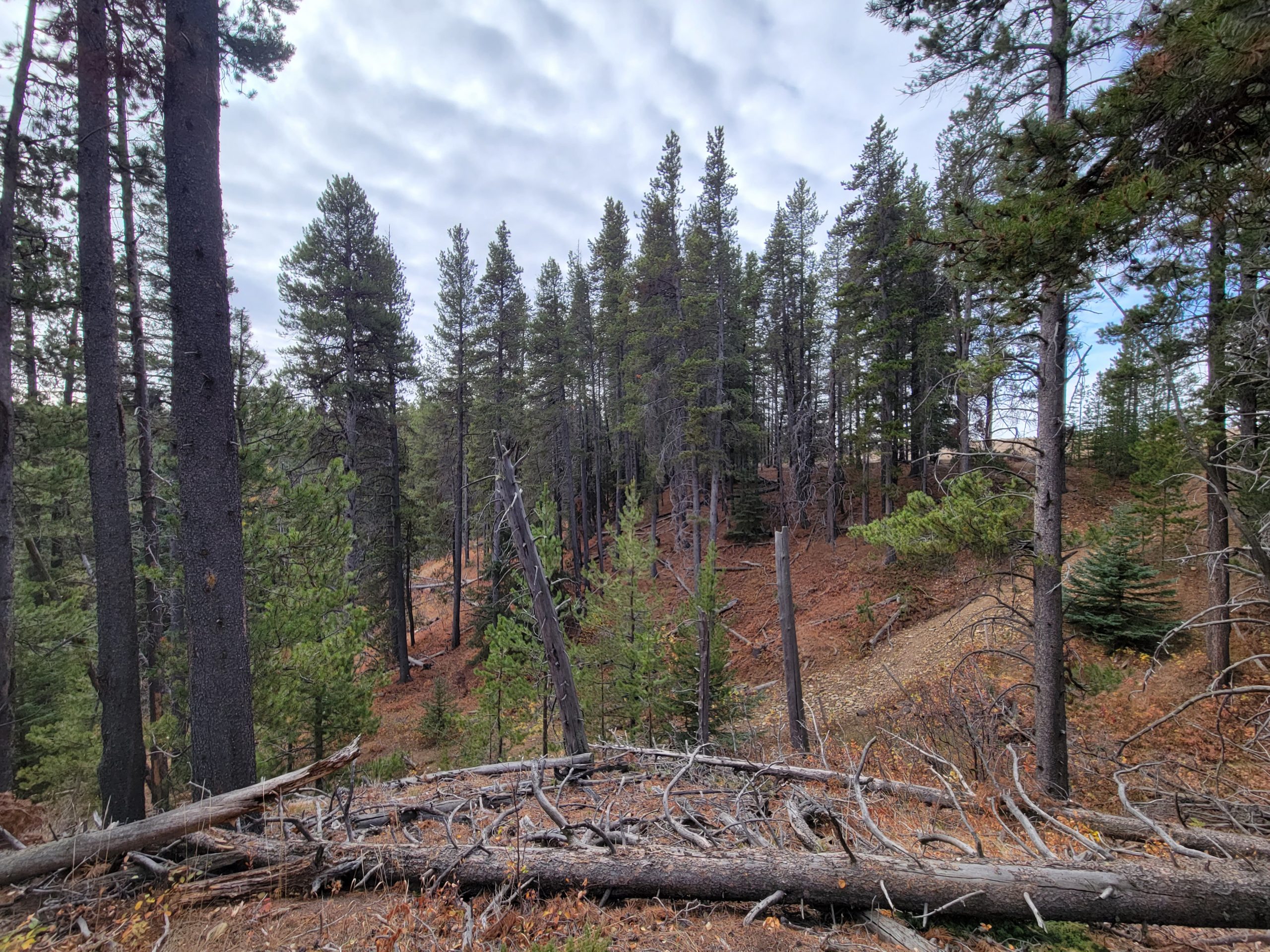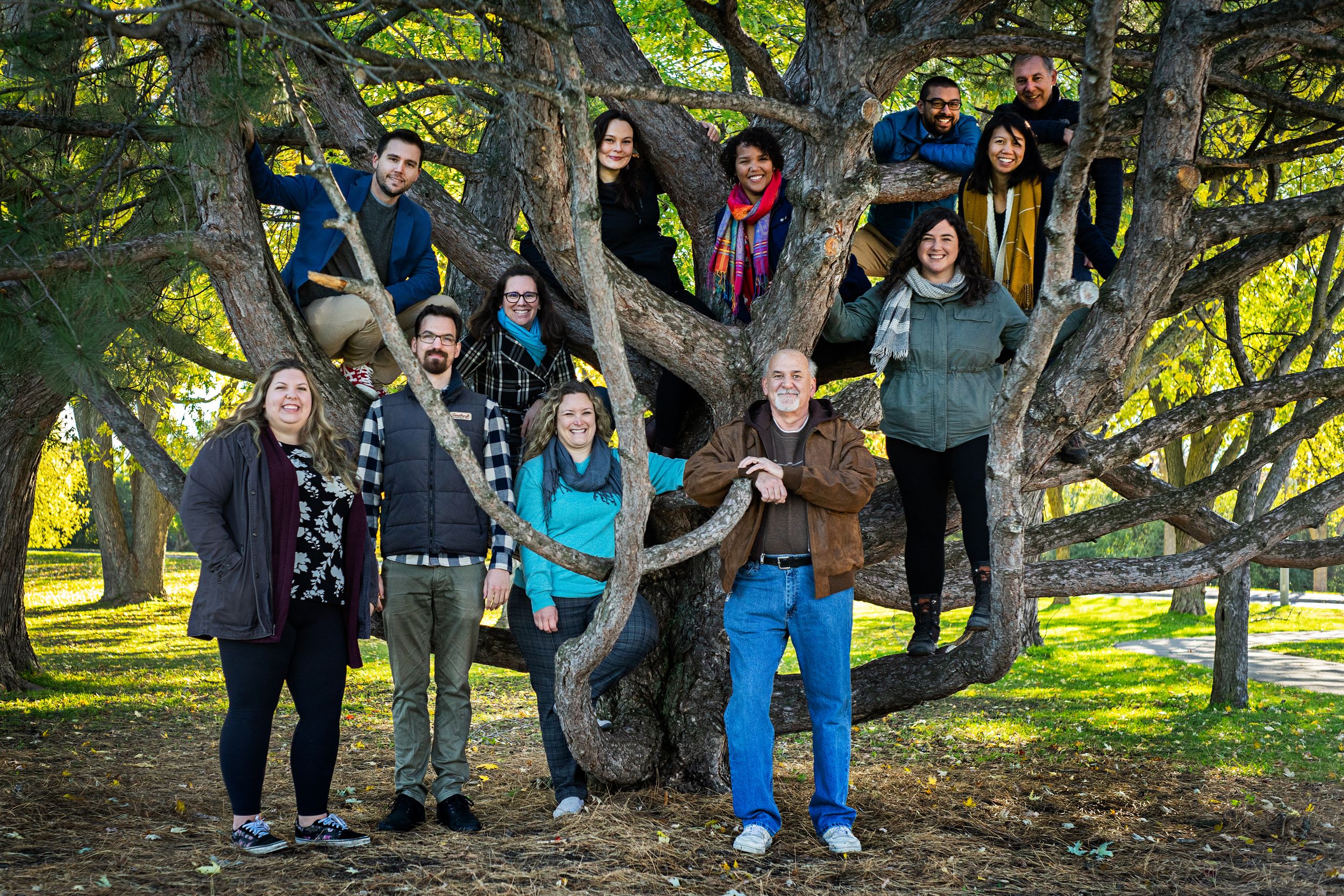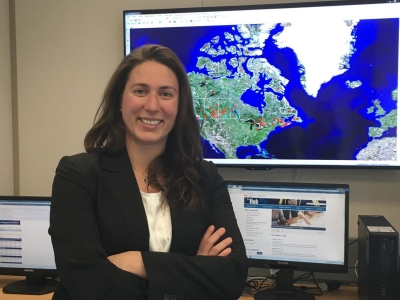By Karen Kelly
Much as coastal communities board up windows and pile sandbags in preparation for a hurricane, Canadian lumber towns are girding themselves for their own natural disaster — the Mountain Pine Beetle.
This wood-boring insect devastated more than 50% of British Columbia’s commercial pine trees in the early 2000s and is moving east, threatening Canada’s boreal forests.
Prof. Stephan Schott and his colleagues are one step ahead of that infestation, enabling communities in Alberta and Saskatchewan to learn from those in British Columbia, where it all started.
“We work with communities at different stages of the beetle outbreak so we can find out the lessons learned and how they’re preparing for future outbreaks,” explains Schott, a professor in the School of Public Policy and Administration (SPPA). He leads a team of graduate students and researchers that are part of a $6.4 million Genome Canada project focused on stopping the beetle’s spread eastward.
Schott’s team is spending time in Quesnel, British Columbia, a town known as the epicentre of the outbreak. It’s on the eastern side of the Rocky Mountains and was first exposed to the tiny insects when they travelled on the wind, crossing the geoclimatic barrier of the range. The beetle devastated the forests around Quesnel and its logging and pulp and paper industries. Twenty years after that first outbreak, Quesnel is still recovering.
“Our timber supply [took] the hardest hits from both the Mountain Pine Beetle epidemic and the 2017 and 2018 wildfires,” states a city report. “Quesnel remains one of the most forest dependent communities in British Columbia, but significant uncertainty exists about the economic future of our region.”

Quesnel dealt with the immediate threat by removing and burning infested trees and harvesting affected stands before they lost their value. Now that the infestation has moved on, the city is working with the local Forestry Initiatives Program to diversify its industry to reduce its vulnerability. This includes finding new uses for wood products and working more closely with Indigenous project partners who have developed unique responses to the threat.
Once Schott and his team learn from Quesnel’s experience — talking to city officials, the logging industry, hunters, fishers, hikers, conservation groups and Indigenous people — they will assess what worked and bring it to communities in Alberta and Saskatchewan that are in the midst of an outbreak or anticipating its arrival.
“Saskatchewan is the last frontier. If it goes through Saskatchewan and reaches the boreal forest, it could destroy the northern pines through the rest of Canada,” says Schott.
Valerie Berseth, a postdoctoral fellow on the project, says these forest towns often seem isolated, but the pine beetle finds them all.
“The challenge with something like Mountain Pine Beetle is what happens in one town or one province has serious consequences for the rest of the country,” she notes, “We don’t yet know if what worked in B.C. will work in the rest of the country.”
A total of 13 Carleton University researchers and graduate students are contributing to the project. One of the project leads is Carleton biologist Prof. Catherine Cullingham, who specializes in tree genomics. She and her colleagues are working to enhance genetic resiliency to the beetle in the lodgepole pine by identifying gene-based markers that predict resiliency in the trees.

Carleton TRIA-FoR Research Team: Heath MacMillan, Jessica Duffy, Mads Andersen, Serita Fudlosid, Rhiannon Peery, Barry Flinn, Valerie Berseth, Jenna Hutchen, Catherine Cullingham, Stephan Schott, Vivian Nguyen and Christopher Orr
On the social science side, Prof. Vivian Nguyen of the Institute of Environmental and Interdisciplinary Science and the Department of Biology is working side-by-side with Stephan Schott as a team lead. She describes herself as a mixed breed between a biologist and social scientist.
“I play a mediating role to explain some of the disciplinary differences and misunderstandings,” says Nguyen. “This includes bringing in voices we do not typically hear from, bringing more co-production into the project, and understanding lessons learned in different spheres.”
Schott describes the collaboration taking place between social and natural scientists as an “interdisciplinary lab.”
“People think we’re just working in our offices with our students, but we work as a team with the scientists, going together into the field to do research.”
These collaborations are a hallmark of Schott’s research: he also leads a $14 million Genome Canada project called FISHES (Fostering Indigenous Small-scale Fisheries for Health, Economy and Food Security).
“When you have an environmental problem, you also get into the social problems of marginalized communities. You need to address them holistically and with the input of communities and partners on the ground. That’s why Genome Canada recognizes the importance of social science.”
Carleton’s Contribution to the Tria-For: Transformative Risk Assessment and Forest Resilience Using Genomic Tools for the Mountain Pine Beetle Outbreak Research Project:
Catherine Cullingham, Carleton University – Co-Lead, tree genomics
Team Leads, Co-investigators
- Heath MacMillan, Carleton University, insect molecular biology
- Vivian Nguyen, Carleton University, human dimensions of conservation, knowledge mobilization, and science-policy interface
- Stephan Schott, Carleton University, natural resource management and public policy
- Barry Flinn, Carleton University, Project Manager
Social Science Team
- Vivian Nguyen, Carleton University, Assistant Professor, human dimensions of conservation, knowledge mobilization, and science-policy interface
- Stephan Schott, Carleton University, Professor, natural resource management and public policy
- Valerie Berseth, Carleton University, Postdoctoral Fellow, social perceptions of risk
- Jenna Hutchen, PhD Student, knowledge exchange and risk communication
- Christopher Orr, University of Waterloo, Postdoctoral Fellow
- Emma Neale, Research Assistant, multi-criteria analysis and management preferences
- Flavia Alves, Research Assistant, recreational values of provincial parks
- Emily Loewen, Honours Thesis Student, media framing of policy responses
Friday, November 18, 2022 in News, Research, School of Public Policy and Administration
Share: Twitter, Facebook



